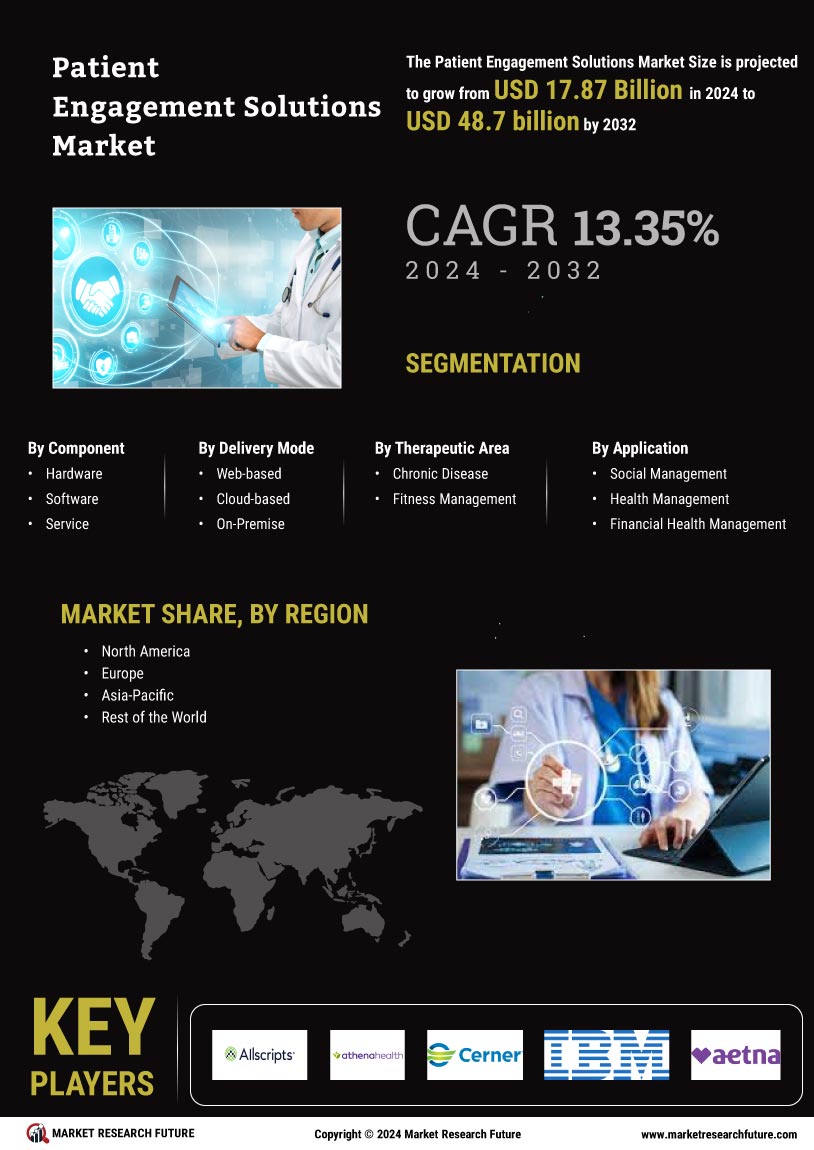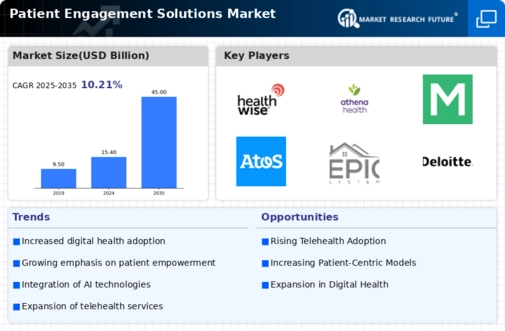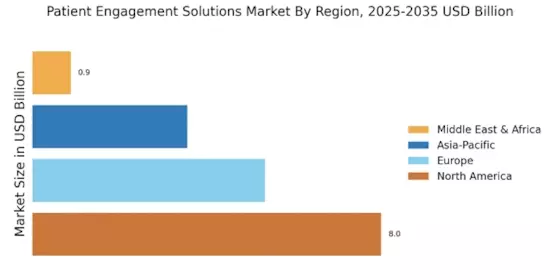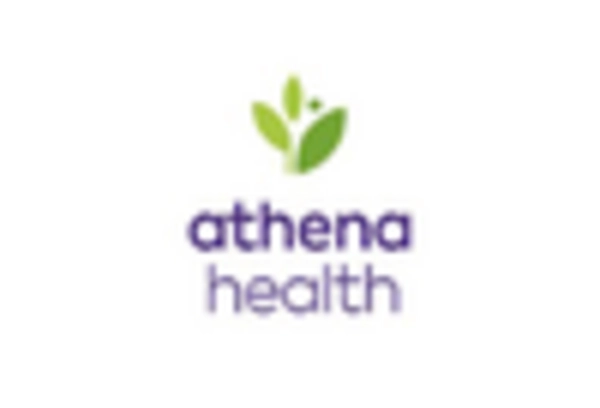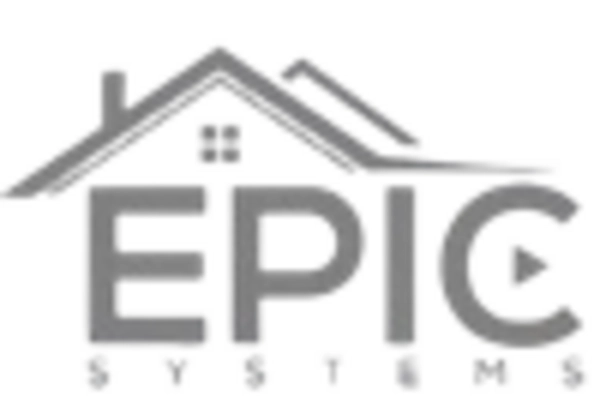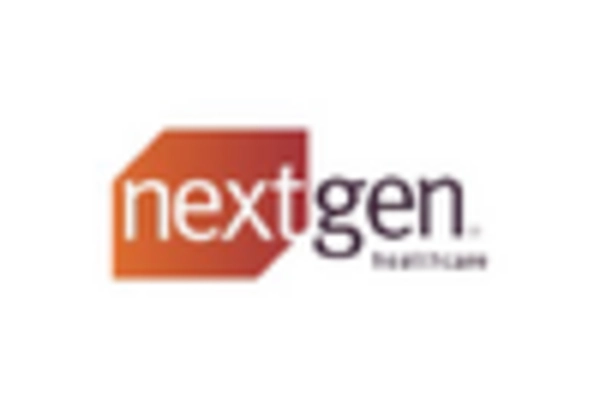Growing Emphasis on Health Literacy
Health literacy is increasingly recognized as a crucial factor in patient engagement and health outcomes. The Patient Engagement Solutions Market is responding to this need by developing solutions that enhance health literacy among patients. By providing accessible information and educational resources, these solutions aim to empower patients to make informed decisions about their health. Research suggests that individuals with higher health literacy are more likely to engage in preventive care and adhere to treatment plans. This correlation underscores the potential for growth in the Patient Engagement Solutions Market as healthcare providers seek to improve health literacy and, consequently, patient engagement.
Rising Demand for Patient-Centric Care
The Patient Engagement Solutions Market is experiencing a notable shift towards patient-centric care models. This trend is driven by an increasing recognition of the importance of patient involvement in their own healthcare decisions. As healthcare providers strive to enhance patient satisfaction and outcomes, they are adopting solutions that facilitate better communication and engagement. According to recent data, approximately 70% of patients express a desire to be more involved in their treatment plans. This growing demand for personalized care is prompting healthcare organizations to invest in patient engagement technologies, thereby expanding the Patient Engagement Solutions Market.
Increased Focus on Chronic Disease Management
Chronic diseases are a significant burden on healthcare systems, necessitating effective management strategies. The Patient Engagement Solutions Market is witnessing a heightened focus on solutions that empower patients to manage their chronic conditions. By providing tools for self-monitoring, education, and communication with healthcare providers, these solutions aim to improve health outcomes and reduce hospitalizations. Data indicates that nearly 60% of adults with chronic conditions report a lack of engagement in their care. This gap presents a substantial opportunity for the Patient Engagement Solutions Market to develop targeted interventions that enhance patient involvement in chronic disease management.
Regulatory Support for Engagement Initiatives
Regulatory bodies are increasingly advocating for patient engagement as a critical component of healthcare delivery. The Patient Engagement Solutions Market benefits from policies that encourage transparency and patient involvement in care processes. For instance, initiatives aimed at improving patient access to health information and promoting shared decision-making are gaining traction. These regulatory frameworks not only support the adoption of engagement solutions but also incentivize healthcare providers to implement them. As a result, the market is likely to see a surge in demand for tools that align with these regulatory expectations, fostering growth in the Patient Engagement Solutions Market.
Technological Innovations Enhancing Engagement
Technological advancements are playing a pivotal role in shaping the Patient Engagement Solutions Market. Innovations such as mobile health applications, telehealth platforms, and wearable devices are transforming how patients interact with healthcare providers. These technologies enable real-time communication, personalized health tracking, and access to educational resources, thereby enhancing patient engagement. Recent statistics indicate that the use of mobile health applications has increased by over 50% in the past few years, reflecting a growing reliance on technology for health management. This trend suggests a robust future for the Patient Engagement Solutions Market as more patients embrace digital health tools.
